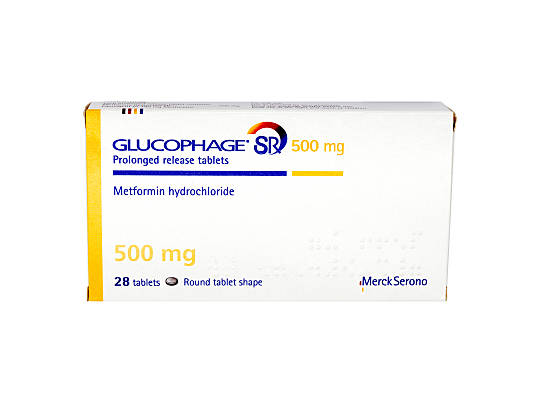Type 2 Diabetes Risk Factors

Medically reviewed by
Dr Kathryn BasfordLast reviewed: 11 Apr 2019
The risk factors that contribute to type 2 diabetes

The chances of you developing type 2 diabetes depends on a combination of risk factors, like your genes and lifestyle.
Type 2 diabetes is a lifelong condition, and in its early stages the signs and symptoms can be difficult to spot. Being aware of any type 2 diabetes risk factors can help you know whether to keep an eye out for any early signs and symptoms.
What are the risk factors for type 2 diabetes?
Type 2 diabetes risk factors include:
- Age – your risk of type 2 diabetes increases with age. You’re more at risk if you’re white and over 40 or if you’re over 25 and African-Caribbean, Black African or South Asian
- Ethnicity – you’re two to four times more likely to develop type 2 diabetes if you are of a South Asian, African Caribbean or Black African descent
- Family history – you’re two to six times more likely to develop type 2 diabetes if you have a parent, sibling, or child that has it already
- High blood pressure – your risk increases if you’ve ever had high blood pressure
- Weight – your risk increases if you’re overweight, especially if you have a high percentage of fat around your middle
- Sedentary lifestyle – this type of lifestyle means you spend long periods of time sitting, which increases your risk of type 2 diabetes
- Smoking – this can also increase your risk of other health conditions, like heart disease and cancer
- Alcohol – excessive drinking can also increase your risk of other health conditions, like heart disease or cancer
- Gestational diabetes – this is a kind of diabetes that affects pregnant women, usually during the second or third trimester. Having this means you’re more likely to get type 2 diabetes later on
- Polycystic ovary syndrome (PCOS) – a condition in women that affects how the ovaries produce eggs. It’s linked to insulin resistance and higher levels of insulin in the blood
- Mental health conditions – conditions like schizophrenia, bipolar disorder, and depression can increase the risk of type 2 diabetes. Antipsychotic medication can also increase your risk, but this increase is low
- Sleep – a poor sleep pattern, a lack of sleep, or sleeping too much are all linked to a higher risk of type 2 diabetes
Are there different risk factors for type 1 diabetes?
The risk factors for type 1 diabetes include:
- Age
- Family history
- Genetics
These are all risk factors which you can’t avoid. The causes of type 1 diabetes have nothing to do with lifestyle or diet. This is compared to type 2 diabetes where many risk factors can be avoided and managed with diet and lifestyle changes.
How do I know my individual risk of type 2 diabetes?
You can visit your GP for a blood test or get a free NHS health check if you’re between 40 – 74. You can visit the NHS health check website for more information.
You can also use an online diabetes risk tool. This will help estimate your risk level for getting type 2 diabetes. There are four different levels of risk for getting type 2 diabetes. These are:
- low
- increased
- moderate
- high
The higher the risk level, the more likely it is that you’ll develop type 2 diabetes in the next 10 years.
You can also get tested for other individual risk factors, like high blood pressure or weight.
Am I prediabetic?
Prediabetes happens when you have slightly higher sugar levels in your blood. Being prediabetic means that you don’t have type 2 diabetes at the moment, but you should act now to try and avoid it.
Prediabetes is a risk factor for developing type 2 diabetes. Similar to having had a form of diabetes called ‘gestational diabetes’ during pregnancy.
You can get a simple blood test to check whether your blood sugar levels are ‘borderline’, which would suggest you’re prediabetic. ZAVA offers a home diabetes test kit to test for this.
If you get tested at your GP, they may ask you to have a fasting blood glucose test. This involves taking a blood sample from your arm after you have been fasting for a few hours. It’s usually taken in the morning because this allows enough time for you to fast properly before the test: while you sleep.
If your blood test results are normal, this doesn’t mean you’re definitely not at risk – you may still have some of the risk factors for type 2 diabetes. It’s important to check your risk regularly, especially if something changes that could increase your risk.
If you’re prediabetic it’s a good idea to get a blood test done at least once a year, to keep checking your blood sugar levels. You’ll also have the chance to discuss how you’re getting on with any changes you’ve been making to reduce your risk.
I have some of the risk factors of type 2 diabetes – what should I do?
The good news is you can reduce your risk no matter what your current level of risk is or how many risk factors your have. You can do this by making changes to your diet and lifestyle.
Making any changes now can delay or prevent type 2 diabetes. Speak to your doctor and get their advice. You can also test to see if you already have type 2 diabetes, or you’re prediabetic. The sooner you know, the sooner you can take action to improve your health.
How do I avoid type 2 diabetes risk factors and prevent it?
You should always aim to maintain a healthy lifestyle to manage your type 2 diabetes risk factors.
It’s important to make changes which are realistic and work for you. You can start by making one change at a time and making it part of your everyday routine. Changes you can make include:
- Eating a healthy, balanced diet that keeps salt, fat and sugar to a minimum
- Losing weight – aim to do this slowly with a loss of 0.5 to 1 kg a week
- Exercising regularly – aim for at least 2.5 hours of physical activity a week
- Stopping smoking – diabetes worsens the effects of smoking on your heart
- Cutting down the amount of alcohol you drink
- Improving your sleep hygiene – having a regular sleep pattern and getting enough sleep can help
There’s nothing you can’t eat if you’re prediabetic or have risk factors for type 2 diabetes, but you should aim to have a healthy balanced diet. Make sure you eat a wide range of foods, including fruits and vegetables, wholegrain carbohydrates, low fat dairy products and oily fish. Try to reduce the amount of fatty foods that you’re eating. Don’t skip meals, and make sure you have breakfast, lunch, and dinner at regular times. There are programmes that your GP might be able to refer you to, which involve spending some time with a dietician for advice about how you can improve your diet.
It’s also important to keep checking your risk level regularly, especially if anything changes, like if you’ve put on weight. You can check your risk again by using the Know Your Risk tool or by going to your GP. Look out for any of the symptoms of diabetes too.
If you’re not sure how often to check your risk of type 2 diabetes, ask your doctor.
Do I need medicine for type 2 diabetes?
Normally you won’t need medication if you’re prediabetic or have diabetic risk factors. You would usually only need medication if you’ve got type 2 diabetes, and even then you’d normally start with lifestyle treatment first. Many people with type 2 diabetes don’t need medication, and they control their diabetes by eating well and exercising more.
If you do need medication, your GP can help you decide the best treatment for you to start. If they decide to start you on Metformin, you can reorder your type 2 diabetes treatment online from ZAVA. As long as you’ve been using Metformin for at least 3 months, you’re happy with your treatment, and it’s still suitable for you, you can order it again and have it delivered to your door without a face-to-face doctor appointment.

from £19.99

from £24.99

from £34.99

No results found.
Please check your spelling or try another treatment name.

Dr Kathryn Basford is a qualified GP who works as a GP in London, as well as with ZAVA. She graduated from the University of Manchester and completed her GP training through Whipps Cross Hospital in London.
Meet our doctorsLast reviewed: 11 Apr 2019
-
diabetes.co.uk. Fasting Plasma Glucose Test. [online] Available at: https://www.diabetes.co.uk/fasting-plasma-glucose-test.html [accessed 24th March 2019].
-
diabetes.co.uk. Pre-diabetes (borderline diabetes). [online] Available at: https://www.diabetes.co.uk/pre-diabetes.html [accessed 24th March 2019].
-
Diabetes UK. Diabetes risk factors. [online] Available at: https://www.diabetes.org.uk/preventing-type-2-diabetes/diabetes-risk-factors [accessed 23rd March 2019].








